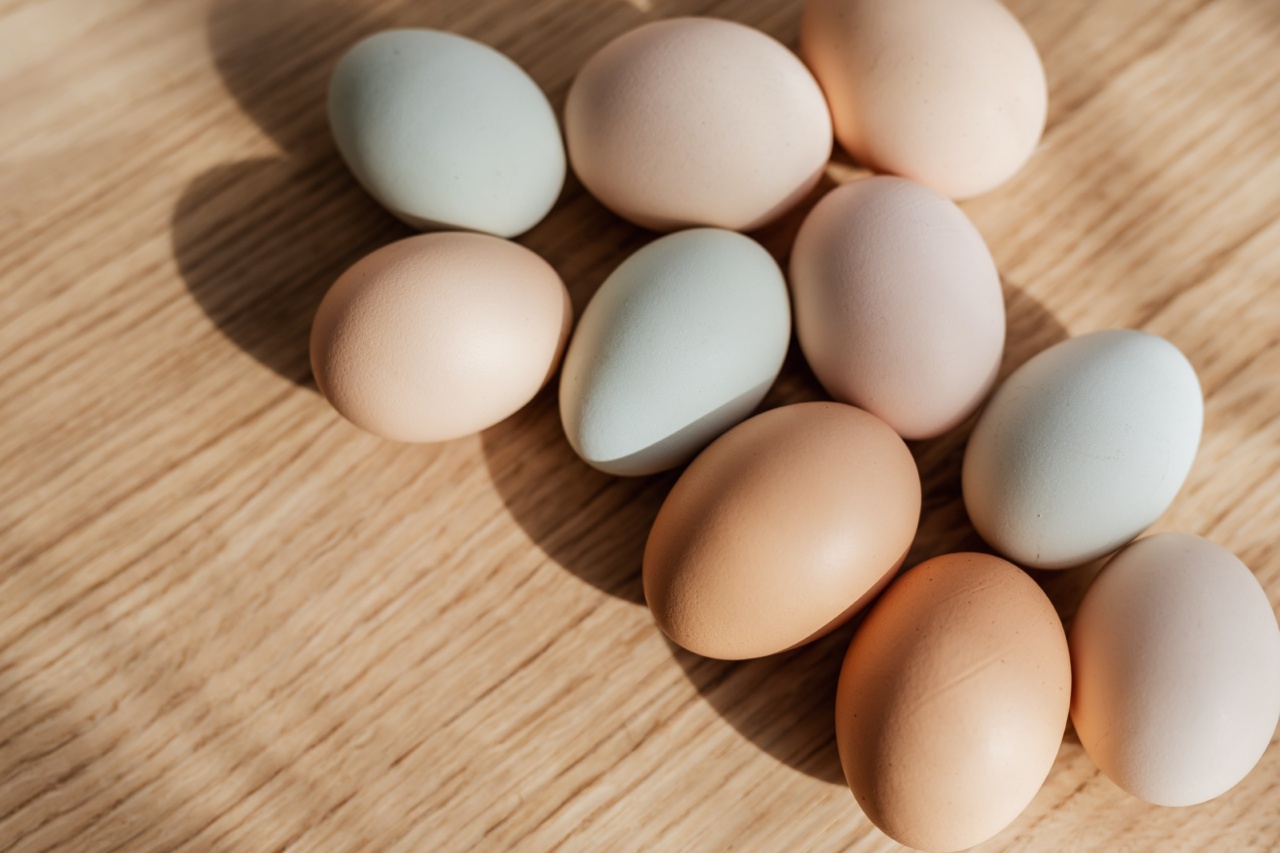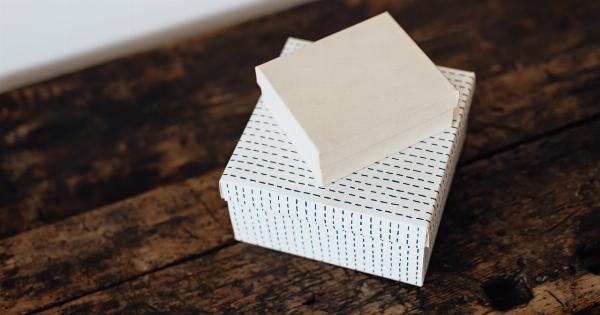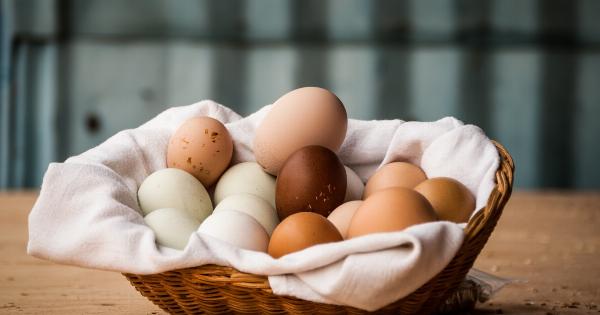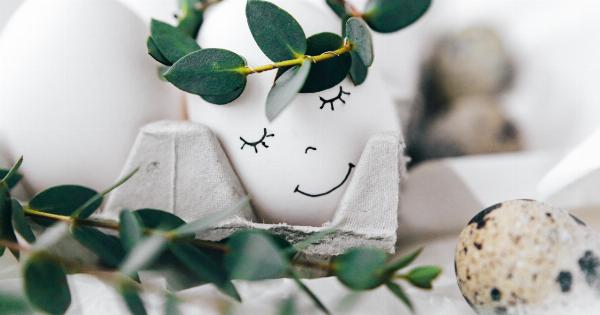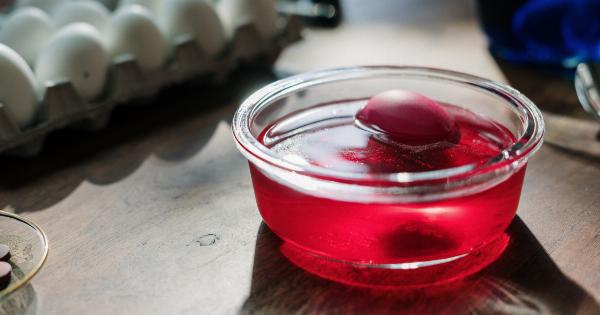Easter is a joyous and festive holiday celebrated by millions of people around the world. One of the most popular traditions associated with Easter is the exchange and consumption of Easter eggs.
These colorful and beautifully decorated eggs are often made from chocolate or are hard-boiled and dyed. But have you ever wondered how long you can enjoy these delicious treats? In this article, we will explore how many days you can eat Easter eggs and some important considerations to keep in mind.
1. The Shelf Life of Chocolate Easter Eggs
Chocolate Easter eggs are a delightful treat enjoyed by children and adults alike. But like any other food product, chocolate has a limited shelf life.
The shelf life of chocolate Easter eggs can vary depending on various factors such as the ingredients used, storage conditions, and the presence of any preservatives.
On average, commercially-produced chocolate Easter eggs can last for several months if stored in a cool (around 60°F to 68°F), dry, and dark place.
However, it is important to read the packaging or check with the manufacturer for specific information on the expiration date or recommended consumption timeframe.
2. Signs of Spoiled Chocolate Easter Eggs
While chocolate Easter eggs may have a relatively long shelf life, it is essential to ensure their quality and safety before consuming them. Here are some signs that indicate that a chocolate Easter egg may have spoiled:.
a. Off smell: If the chocolate Easter egg emits an unusual or unpleasant odor, it is best to avoid consuming it.
b. Changes in appearance: Mold growth, discoloration, or a white powdery substance on the surface of the chocolate are clear indications that it should not be eaten.
c. Taste and texture: Spoiled chocolate may have an odd or bitter taste, or the texture may become grainy or waxy.
If you notice any of these signs, it is safer to discard the chocolate Easter egg rather than risk consuming it.
3. Shelf Life of Hard-Boiled Easter Eggs
Hard-boiled Easter eggs are another popular variety that is often used for Easter egg hunts and decorations. Unlike chocolate Easter eggs, hard-boiled eggs have a different set of considerations.
In general, hard-boiled eggs have a shelf life of about one week if refrigerated promptly after cooking. It is crucial to store hard-boiled Easter eggs in the refrigerator at a temperature of 40°F or below.
It is best to consume hard-boiled eggs within a few days to ensure optimal freshness and safety.
4. Signs of Spoiled Hard-Boiled Easter Eggs
Hard-boiled Easter eggs can spoil faster than chocolate Easter eggs due to their perishable nature. Here are some signs that indicate a hard-boiled Easter egg may have spoiled:.
a. Unpleasant odor: If the hard-boiled egg smells bad or foul, it is best not to consume it.
b. Changes in appearance: Cracks, leaks, or shells that are slimy or have a greenish color are signs that the egg has spoiled.
c. Texture and taste: If the egg white or yolk has a slimy or rubbery texture, or if it tastes off, it is better to discard the egg.
It is important to note that hard-boiled eggs should not be left unrefrigerated for more than two hours, as they can quickly develop harmful bacteria.
5. Safety Tips for Enjoying Easter Eggs
Whether you are indulging in chocolate Easter eggs or hard-boiled Easter eggs, here are some general safety tips to keep in mind:.
a. Storage: Always store chocolate Easter eggs in a cool and dry place, away from direct sunlight and strong odors. Hard-boiled Easter eggs should be refrigerated promptly after cooking.
b. Check for spoilage: Before consuming any Easter egg, inspect it for any signs of spoilage, as discussed earlier.
c. Allergies and dietary restrictions: If you or someone you are sharing Easter eggs with has food allergies or dietary restrictions, make sure to read the ingredient labels carefully.
d. Avoid cross-contamination: If handling both chocolate and hard-boiled Easter eggs, wash your hands thoroughly with soap and water in between to prevent cross-contamination.
e. Dispose of leftovers: If you have leftover Easter eggs that have not been consumed within the recommended timeframes, it is best to throw them away to avoid any potential foodborne illnesses.
6. Creative Ways to Utilize Leftover Easter Eggs
If you find yourself with an abundance of leftover hard-boiled Easter eggs, there are several creative and delicious ways to utilize them:.
a. Egg salads: Chop up hard-boiled eggs and mix them with mayonnaise, mustard, and your choice of seasonings to create a tasty egg salad. Serve it on sandwiches or as a topping for salads.
b. Deviled eggs: Slice hard-boiled eggs in half, remove the yolks, mash them with mayonnaise and other flavors such as mustard, and pipe the mixture back into the egg whites. This classic appetizer is always a hit.
c. Egg curry: Hard-boiled eggs make an excellent addition to various curries. Add them to your favorite curry recipe for a protein-packed twist.
d. Egg sandwiches: Mash hard-boiled eggs with avocado, salt, and pepper, and use it as a filling for sandwiches or wraps. You can also add some lettuce and tomato for extra crunch.
e. Pickled eggs: If you are feeling adventurous, try pickling your hard-boiled eggs. The tangy and slightly sweet flavor of pickled eggs can be a delightful snack or a unique addition to charcuterie boards.
Conclusion
Easter eggs are not only beautiful decorations but also delicious treats that bring joy during the Easter season.
Whether you have chocolate Easter eggs or hard-boiled Easter eggs, it is important to consider their shelf life and signs of spoilage before consuming them. Remember to store them properly, check for any changes in appearance, and trust your senses when it comes to taste and odor.
By following these guidelines, you can enjoy your Easter eggs safely and make the most of this traditional and delicious holiday tradition.
